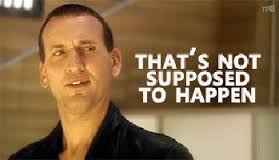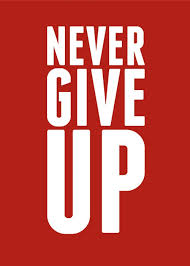LETTERS FROM THE GLOBAL PROVINCE
Doctoring Is Still Just An Art Form, Global Province Letter, 14 January 2015
"A life is worth nothing, but nothing is worth a life."—Andre George Malraux

Duel with Death. No matter where we are on this earth and no matter how long we have been here, we are engaged in a duel with death. It is a noble fight. But nothing can excuse the gods for ultimately snatching our lives away. For this we can scold them.
Doctors play this game called mortality as best they can, oft as not pushing rocks uphill. They try to slay all diseases, afflictions, and intrepid accidents that can reduce us to half lives or take us down altogether only to lose much of the time. The physicians tame only a small percentage of the bacterial and viral invaders roaming around in our streets.
The Contrarian. And time and again, the docs predict a fatal ending for some mortal who then has the gall and effrontery to go on living. Much to the surprise of our own super duper retina man named Milton, we have rapidly gained vision back in our left eye, something he would not have predicted. A bollixed operation had put the world in a blur for us.
As ornery has been our longtime friend and occasional martini drinking buddy Don Moffitt. We like to say Don is the best front page writer the Wall Street Journal ever sported. The paper he worked on is dead now (MacMurdoch's version has taken over there). He won a prize or two at the WSJ. He writes beautifully and simply, just the sort of fellow to give us an ironic look at death thwarted.
is account arrived at our threshold just before Christmas, seemingly dire at first, but radiating good cheer when all was said and done. He reminds us that at cards or life we can, now and again, turn up our nose and smile smugly at the oddsmakers.
Moffitt's Musings as Christmas Approached
I'm having a rather weird Christmas week this year, devoted less to the usual honoree than to Our Lady of Carcinoma: another three-hour binge on chemotherapy Tuesday followed by another one-hour bout with gamma-ray beams on Christmas Eve. That may not strike everyone as fun, but to me it almost is. Nearly three months to the day after double-barreled diagnoses of skin cancer and inoperable lung cancer, and given three months to six months to live, I find that the hasty sentence has been suspended indefinitely and I'm probably headed for cancer-free survival. Or so I was told a few days ago. There's a downside: The radioactivity doesn't make me glow at night, so we still have to switch on Christmas lights. I wasted too much time on my obituary and memorial service wishes and have tossed those into the file for future use. At my age, there's bound to be a dark cloud behind every silver lining.
The early diagnosis set in motion some surreal events. It rather powerfully focused my attention and got me in sort of a rush to order my affairs while I was still physically and emotionally able. I did accomplish quite a bit, among other things getting my will updated, and managing the distress sale of my boat. There was a kind of amusing incident connected with that, distracting me from the grim medical outlook. The mild-mannered bed- and- breakfast proprietor who kept his sailboat in a slip across the dock from mine at our marina revealed that his day job was at "The Farm," the CIA training camp across the creek, and that a buddy of his at The Farm was interested in buying my boat. That aroused my curiosity. Internet snooping eventually showed that the B&B proprietor's specific day job was as CEO of a private defense contractor that trains unnamed guys in such skills as jungle warfare, urban surveillance, escape and evasion, long-distance sniping, and advanced booby trapping. Here in spookville, it really does get spooky at times. :)
The guy from The Farm made his bid for my boat too late. I sold it within hours of posting it on craigslist to a diesel engine mechanic who showed up with thousands of dollars in hard cash. I signed the title over at the dock after a wild open-her-up test ride in a thunderstorm. The melanoma turned out to be almost trivial, as nasty cancers go, requiring only the removal of a part of my right ear-lobe. I didn't even bother, under the circumstances, to have it repaired by the plastic surgeon to whom I'd been referred, and had the surgeon who did the carving sew it up after he assured me nobody hardly ever saw both of someone's ear lobes at the same time. I told him that so long as I wouldn't scare dogs and small children on the streets, to go ahead. The lung cancer was hardly trivial -- a beast about the size of a ping-pong ball -- but contrary to the doctors' early judgment, had not spread to my lymph nodes or elsewhere. Although inoperable, it has responded by shrinking and weakening under highly focused chemotherapy and radiation and may well be eradicated, to use the doctors' word. At worst, it now seems, I won't depart this slough of despond for a couple of years.

I had been warned that I might want to stop treatment if it made my quality of life too dreadful, but the doctors think I'll go on to finish it without intolerable side effects. After the first month or so of chemo and radiation with little misery, I feel like echoing the guy who jumped off the top of the Empire State Building, yelling as he plummeted past the upper floors, "So far, so good!" I did experience one major scare, aside from the buyer's test drive of my boat. An accident occurred during the surgical port placement procedure under the skin of my chest a month-and-a-half ago, the port to be used to pipe the chemo into my bloodstream. The collapsed lung cost me a few moments of total terror and a couple of additional days in the hospital. The surgeon who'd accidentally nicked my lung was chagrined and apologetic and said this was only the second time he'd had that kind of accident in 1,000 port placements. "Well, hell," I said, "forget it. It wasn't your fault." "No," he answered glumly. "It WAS my fault." I was too grateful to get my lung and breathing back to complain.
P.S. Two of the biggest villains out there are cancer (especially breast cancer) and heart disease. You will want to read Stephanie Day's and Brian McBain's affecting accounts of their battles with these two hangmen on Global Province:

Stephanie Day's Heroic Battle
My First Year of Cancer (Installment 1)
Silicon Valley executive Stephanie Day has given us her first thoughts about coming down with breast cancer—the discovery and all that rush of things that occurs from the moment you know that it has become your close companion. She and others such as Brian McBain—see below—tell us what we already know: no doctor, no nurse, no healthcare employee really know a disease. Only the patient knows. And the lonely patient, amply informed, is his or her own best doctor. Please go here for a full transcript of "My First Year Living with Cancer."
Update: Day by Day (Installment 2)
Stephanie Day's wrenching battle with breast cancer goes on. As she has said, the odds of winning are only about 50%. Yet she reports to us that her doctor is cautiously encouraged: "I am still on chemo and Herceptin three Fridays out of the month, with shots during the week for blood counts and am feeling slightly more energetic. My doctor believes that I am getting better....".
Update: Never Passive (Installment 3)
This installment concludes Stephanie's first year of wrestling with cancer, but, we are most happy to report, this will be far from her last chapter. Cancer and hospitaldom leaves one feeling weak and helpless, but it's incumbent on anybody with such a critical illness to (a) take charge of one's fate, even if it puts one at odds with medical professionals and (b) help the thousands of other folks out there who are fighting this existential battle along with you. In this installment, we learn that yet another divine Ms. Day has spunk enough to call the shots and to give some tips to her fellow sufferers.
Brian McBain Beats the Grim Reaper
Heart Attacks and Aftershocks 1984-2004, Part I
Our friend and consulting colleague Brian McBain, in a comedic and tear-inspiring account, lays out what he's done to keep his ticker beating, even if it took a pause or two just to teach him a lesson. His brush with death, not unlike that of radio's Don Imus, has made his wit a little more penetrating and made him see, with more clarity, just what's important to him. Mortality does that.
Heart Attacks and Aftershocks 1984-2004, Part II
Brian is still very much with us. But he'd probably say (we have not asked him) that he's alive and kicking in spite of, not because of, today's health care system. Heart and purpose seem to have gone out of health care. Moreover, it is still trying to render crisis, one-off care when a growing percentage of those it encounters have chronic complaints requiring ongoing therapy that largely should take place outside the hospital. Today, in health and business, you pretty much have to go around the system to get the job done.
P.P.S. Despite all the medical research and amazing efforts by conscientious physicians, disease really does still have the upper hand. There's quite a laundry list of incurables. Chronic disease, which ravages our rapidly growing elder population, afflicts stupendous numbers of people and inflicts huge costs on our economy. To wit: "Generally incurable and ongoing, chronic diseases affect approximately 133 million Americans, representing more than 40% of the total population of this country. By 2020, that number is projected to grow to an estimated 157 million, with 81 million having multiple conditions. About half of all adults have a chronic condition, and approximately 8 percent of children ages 5 to 17 were reported by their parents to have limited activities due to at least one chronic disease or disability. More and more people are living with not just one chronic illness, such as diabetes, heart disease or depression, but with two or more conditions. Almost a third of the population is now living with multiple chronic conditions. In 2009, 7 out of 10 deaths in the U.S. were due to chronic diseases. Heart disease, cancer and stroke account for more than half of all deaths each year.
P.P.S. The next letter from the Global Province will also deal with health and healthcare. Here the goal will be to think of tactics and strategies which deal with health issues at an acceptable cost and which show the promise of dealing with sufficient numbers of people. It could be said we are not rendering healthcare unless we are reaching 75% of the population (in the U.S. or the world) for dollars instead of hundreds of dollars early on so that little problems don't become big problems.
Home - About This Site - Contact Us
Copyright 2014 GlobalProvince.com